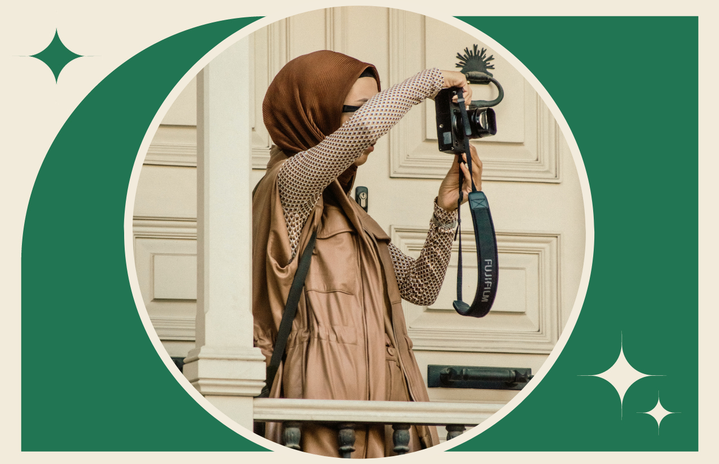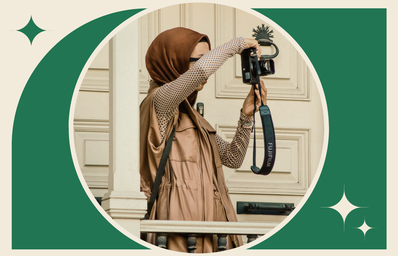We hear time and time again that there aren’t enough films made by women, that every other film we watch is directed by a man, and that we want more female creatives on our radars. While it’s true that Hollywood can (and often does) centralize stories by men, about men, and for men, perhaps instead of blaming a system that is resistant to change, we as an audience should do some digging. We must expose ourselves to the immense bodies of work of female filmmakers and documentarians that aren’t on your immediate Netflix recommendations — which can be pretty hard. Luckily, I have you covered. This Women’s History Month, and beyond, consider checking out the work of these female directors, filmmakers, and visual artists you may not have heard of before.
While it’s important to still recognize the artistic contributions of people such as Greta Gerwig (Barbie, Little Women, Lady Bird), Emerald Fennell (Saltburn, Promising Young Woman), Ava DuVernay (Origin, A Wrinkle In Time, Selma), and Sofia Coppola (Marie Antoinette, Priscilla, The Virgin Suicides), myriad lesser-known women directors deserve praise, too. From in-depth documentaries highlighting the human condition all the way to action-packed scripted films, these female directors pack a lot of heart into their projects and might just become your new favorite filmmakers.
- Raja Amari
-
Originally trained as a dancer, Amari brings a rhythmic sensibility to her body of work. Her first film, Satin Rouge, chronicles a housewife’s journey as she becomes a cabaret belly dancer. The film is heralded as an exciting and dynamic portrayal of a Tunisian woman often not seen on screen and won multiple awards, including the Best African Film Award at the Montreal World Film Festival. Amari’s newest film is a documentary titled She Had a Dream, about a 25-year-old Black Tunisian woman involved in political activism, specifically during the national elections.
- Tatiana Huezo
-
With her first feature, El Lugar Más Pequeño (The Smallest Place), debuting in 2011, Huezo has cultivated work that reflects human connection, complexity, and devastation. Beginning with an exploration of the civil war in El Salvador, reflecting half of her nationality, and later covering her Mexican nationality in Tempestad with another documentary, Huezo emphasizes the threat of femicide in Latin America. Her newest documentary, The Echo, was recently released in February 2023 and follows a community in the Mexican highlands and the children who learn to grow up in this environment.
- Tracey Deer
-
Notably, the first Mohawk woman to win a Gemini Award, the Canadian equivalent of an Emmy or BAFTA, Deer has worked in documentaries, television, film, and even behind the scenes as the founder of Mohawk Princess Productions. Most of her work spotlights Mohawk women throughout different stages of life, with her documentary and subsequently inspired TV show Mohawk Girls centering on young women who must decide if they will stay or leave their reservation. Deer described the TV show as “Sex and the City for the Native set,” (we love to see it), whereas the documentary concentrates on adolescent girls and won Best Documentary at the ImagineNATIVE Film + Media Arts Festival.
- Angela Robinson
-
I am personally a big fan of Robinson’s work, specifically her short film, and eventual feature adaptation, D.E.B.S. An absolute classic for anyone interested in lesbian rom-com with a unique spy-school twist and a great lip-synced performance of “A Little Respect” by Erasure, it is a staple of queer cinema. Robinson has also worked on other popular series such as The L Word and True Blood and directed the 2017 film Professor Marston And The Wonder Women about the queer lovers behind the creation of the beloved comic character of Wonder Woman. In 2021, it was announced that she would be working with HBOMax to develop a series adapted from the Madama Xanadu DC comics.
- Nia Dinata
-
Though a critically acclaimed and awarded director, Dinata has experienced her fair share of backlash from her own country of Indonesia. In 2003, she directed and co-wrote the film Arisan! (The Gathering) which was the first Indonesian film to show two men kissing. Her work would come to cover the nation’s controversial issues surrounding sexuality, including polygamy and prostitution, in comedic and thoughtful ways. Dinata has since become accustomed to censorship of her films but remains steadfast in her provocative depictions of society. Her Instagram shows that she is editing a documentary about the remains of Muarajambi, the largest Buddhist institution on the golden island. Her most recent film directing project includes a Netflix-released movie, A World Without, a 2021 drama thriller about a country where dating is illegal.
It is vital that we remember that even though films made by women are not flooding our feeds, it does not mean they do not exist. Honoring women means putting in the effort to honor ones that are not as popular as the ones we see at the Oscars!


